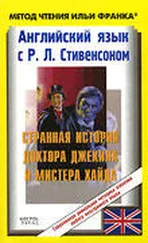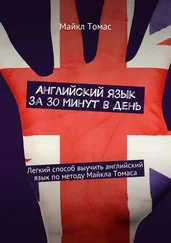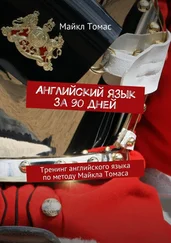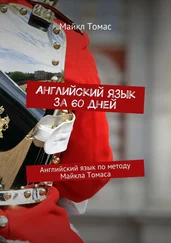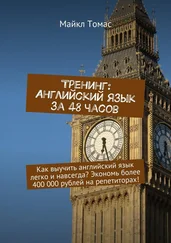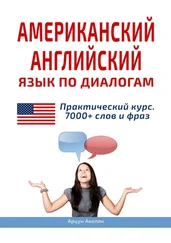У меня ничего нет.
- * -
I don’t have anything.
- * -
I don’t have anything.
- * -
Say «у меня много денег».
- * -
I have a lot of money.
- * -
У меня есть 90 долларов.
- * -
I have ninety dollars.
- * -
Или 100 долларов.
- * -
Or one hundred dollars.
- * -
Вы можете уехать с нами.
- * -
You can leave with us.
- * -
You can leave with us.
- * -
Завтра.
- * -
Tomorrow.
- * -
Try to say «моя жена хочет уехать завтра».
- * -
My wife wants to leave tomorrow.
- * -
Мы едем в Бостон.
- * -
We are going to Boston.
- * -
Вместе
- * -
Together
- * -
Потом
- * -
Then
- * -
Then
- * -
Мы едем в Вашингтон.
- * -
We are going to Washington.
- * -
Может быть.
- * -
Maybe
- * -
Мы хотели бы увидеть нашу подругу «Marry».
- * -
We’d like to see our friend Marry.
- * -
Marry
- * -
We’d like to see our friend Marry.
- * -
Они живет в Вашингтоне.
- * -
She lives in Washington.
- * -
She lives
- * -
И она работает там.
- * -
And she works there.
- * -
she works
- * -
«У нее нет машины». Listen and repeat.
- * -
She doesn’t have a car.
- * -
doesn’t
- * -
doesn’t
- * -
doesn’t have
- * -
She doesn’t have
- * -
She doesn’t have a car.
- * -
«Doesn’t» - это сокращенная форма от сочетания «does not».
- * -
Скажите еще раз «у нее нет машины».
- * -
She doesn’t have a car.
- * -
She doesn’t have a car.
- * -
Say «она работает в Вашингтоне».
- * -
She works in Washington.
- * -
И у нее нет машины?
- * -
And she doesn’t have a car?
- * -
Try to say «ей не нужна машина».
- * -
She doesn’t need a car.
- * -
She doesn’t need a car.
- * -
Слушайте вместе утвердительную и отрицательную формы.
- * -
She needs – She doesn’t need.
- * -
She needs – She doesn’t need.
- * -
Now say again «у нее нет машины».
- * -
She doesn’t have a car.
- * -
Try to say «я не думаю, что ей нужна машина».
- * -
I don’t think she needs a car.
- * -
I don’t think she needs a car.
- * -
Спросите его, достаточно ли у него денег.
- * -
Do you have enough money?
- * -
Say «да, я так думаю».
- * -
Yes, I think so.
- * -
I think so
- * -
Try to say «нам ничего не нужно».
- * -
We don’t need anything.
- * -
We don’t need
- * -
We don’t need anything.
- * -
И нашей подруге тоже ничего не нужно.
- * -
And our friend doesn’t need anything.
- * -
doesn’t
- * -
Our friend doesn’t need anything.
- * -
Мы собираемся уехать.
- * -
We are going to leave.
- * -
Завтра ночью.
- * -
Tomorrow night.
- * -
Мы бы хотели увидеть Вашингтон.
- * -
We’d like to see Washington.
- * -
Say «наша подруга живет там».
- * -
Our friend lives there.
- * -
Lives
- * -
Она там работает тоже.
- * -
She works there too.
- * -
She works there too.
- * -
Do you remember how to ask «куда вы едите?»
- * -
Where are you going?
- * -
Where are you going?
- * -
Ask if the department stores are open now.
- * -
Are the department stores open now?
- * -
Say «я так не думаю».
- * -
I don’t think so.
- * -
I don’t think so.
- * -
Do you remember how to say «моя жена хочет».
- * -
My wife wants.
- * -
Ask «что хочет делать ваша жена?»
- * -
What does your wife want to do?
- * -
What does your wife want to do?
- * -
Say «нам ничего не нужно».
- * -
We don’t need anything.
- * -
Но мы хотим кое-что купить.
- * -
But we want to buy something.
- * -
«В магазине» имея ввиду какой-нибудь магазин вообще.
- * -
In a store.
- * -
In a store.
- * -
Мы хотим кое-что купить.
- * -
We want to buy something.
- * -
Для нашей подруги Marry.
- * -
For our friend Marry.
- * -
For our friend Marry.
- * -
Say «просите».
- * -
I’m sorry.
- * -
I’m sorry.
- * -
Вы ничего не сможете купить.
- * -
You can’t buy anything.
- * -
You can’t buy anything.
- * -
Для вашей подруги.
- * -
For your friend.
- * -
Ask «почему?»
- * -
Why?
- * -
Why?
- * -
Try to say «сейчас слишком поздно».
- * -
It’s too late.
- * -
too late
- * -
It’s too late.
- * -
Скажите, что универмаги сейчас закрыты.
- * -
The department stores are closed now.
- * -
The department stores are closed now.
- * -
Скажите, что завтра они будут открыты.
- * -
They’re open tomorrow.
- * -
Say «мы собираемся уехать завтра».
- * -
We are going to leave tomorrow.
- * -
Вместе
- * -
Together
- * -
Say «Бостон -дорогой», имея ввиду дорогой город.
- * -
Boston is expensive.
- * -
Boston is expensive.
- * -
И Вашингтон тоже дорогой.
- * -
And Washington is expensive too.
- * -
Урок №27 окончен.
В этом уроке вам предстоит услышать менее формальный разговор, чем вы слушали до сих пор.
Вы услышите, как дикторы говорят друг другу «Hi», а не «Hello», «thanks a lot» вместо «thank you very much». Эти неформальные выражения часто употребляются в повседневной речи.
Now listen well.
- * -
Now listen well.
A - Hi, Katy. How are you?
B - Hi, Charles. I’m fine, thanks. And you?
A - Not very well.
B - Why? What’s wrong?
A - Oh, I don’t know.
B - Maybe you worked too much.
A - Yes, maybe.
B - You know, I’m going to Boston today. My family lives there. Would you like to go with me? I’m going to leave at five o’clock.
Читать дальше

